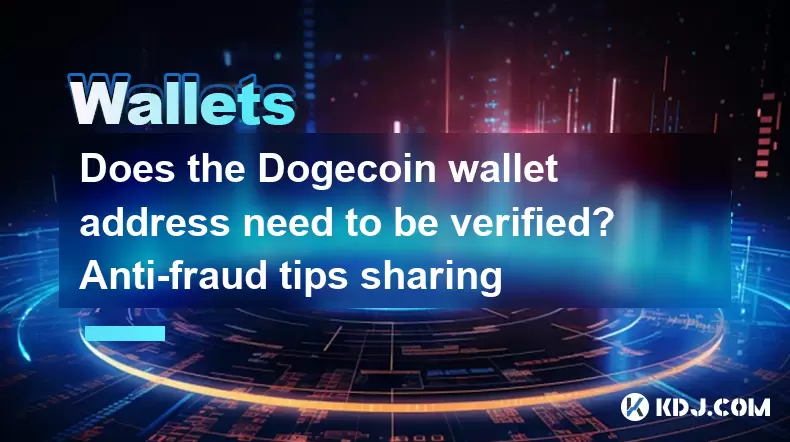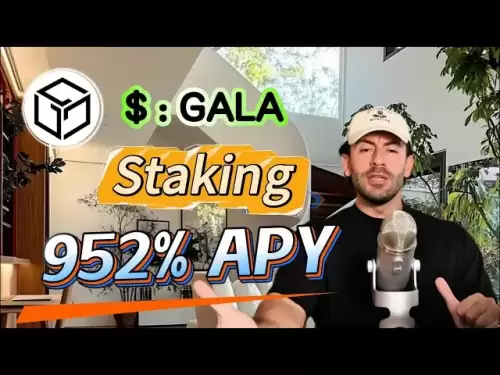-
 Bitcoin
Bitcoin $114500
-0.31% -
 Ethereum
Ethereum $3648
1.11% -
 XRP
XRP $3.033
-0.27% -
 Tether USDt
Tether USDt $0.9999
-0.01% -
 BNB
BNB $758.5
-0.32% -
 Solana
Solana $167.5
1.48% -
 USDC
USDC $0.9998
-0.02% -
 TRON
TRON $0.3331
0.74% -
 Dogecoin
Dogecoin $0.2039
0.25% -
 Cardano
Cardano $0.7419
-0.46% -
 Hyperliquid
Hyperliquid $39.21
2.66% -
 Stellar
Stellar $0.4049
-1.95% -
 Sui
Sui $3.483
-0.56% -
 Bitcoin Cash
Bitcoin Cash $570.8
2.89% -
 Chainlink
Chainlink $16.67
-0.57% -
 Hedera
Hedera $0.2470
-1.57% -
 Ethena USDe
Ethena USDe $1.001
0.00% -
 Avalanche
Avalanche $22.36
1.52% -
 Litecoin
Litecoin $123.4
4.35% -
 UNUS SED LEO
UNUS SED LEO $8.989
0.09% -
 Toncoin
Toncoin $3.324
-2.40% -
 Shiba Inu
Shiba Inu $0.00001219
-1.30% -
 Uniswap
Uniswap $9.811
2.54% -
 Polkadot
Polkadot $3.662
-0.07% -
 Monero
Monero $295.5
-3.85% -
 Dai
Dai $1.000
0.01% -
 Bitget Token
Bitget Token $4.345
0.24% -
 Cronos
Cronos $0.1380
0.95% -
 Pepe
Pepe $0.00001044
-1.14% -
 Ethena
Ethena $0.5981
-4.24%
Does the Dogecoin wallet address need to be verified? Anti-fraud tips sharing
Dogecoin wallet addresses don't need verification, but verifying the recipient's address is crucial to avoid irreversible fund loss. Use anti-fraud tips to protect your investments.
May 13, 2025 at 08:35 am

Does the Dogecoin wallet address need to be verified? Anti-fraud tips sharing
In the world of cryptocurrencies, security and verification processes are paramount to ensure the safety of your assets. When it comes to Dogecoin, a popular cryptocurrency known for its community-driven nature, the question of whether a wallet address needs to be verified is crucial. Understanding the verification process for Dogecoin wallet addresses and sharing anti-fraud tips can help protect your investments and enhance your experience in the crypto space.
What is a Dogecoin Wallet Address?
A Dogecoin wallet address is a unique string of characters that serves as the destination for sending and receiving Dogecoin. It is essentially a public key that allows others to send Dogecoin to your wallet. Each wallet address is generated using cryptographic algorithms to ensure its uniqueness and security. When you create a Dogecoin wallet, whether it's through a software wallet, a hardware wallet, or an online platform, you are provided with a wallet address to use for transactions.
Do Dogecoin Wallet Addresses Need Verification?
Dogecoin wallet addresses do not require verification in the same way that traditional bank accounts or email addresses do. Unlike bank accounts that require identity verification to comply with regulations, Dogecoin wallet addresses can be created and used without any personal information being submitted. This anonymity is one of the appealing aspects of cryptocurrencies but also a point of vulnerability that fraudsters may exploit.
The verification of a Dogecoin wallet address typically happens at the transaction level. When you send Dogecoin to another address, the transaction is verified by the Dogecoin network through a process called mining. Miners validate transactions and add them to the blockchain, ensuring that the sender has the necessary funds and that the transaction is legitimate. This network-level verification ensures the integrity of the Dogecoin ecosystem but does not involve verifying the identity of the wallet address owner.
Importance of Verifying the Recipient's Address
While the Dogecoin network verifies transactions, it is crucial for users to verify the recipient's address before sending any funds. Mistakes in entering the address can lead to irreversible loss of funds. Here are some steps you can take to ensure you are sending Dogecoin to the correct address:
- Double-check the address: Always copy and paste the address from the recipient's source rather than typing it manually. A single incorrect character can result in sending your Dogecoin to the wrong address.
- Use a QR code: If the recipient provides a QR code, scan it to automatically populate the address field in your wallet. This method reduces the chance of human error.
- Confirm with the recipient: Before sending a large amount of Dogecoin, confirm the address with the recipient through a separate communication channel, such as a phone call or a different messaging app.
Anti-Fraud Tips for Dogecoin Users
Protecting your Dogecoin from fraud requires vigilance and adherence to best practices. Here are some anti-fraud tips to help safeguard your investments:
- Use reputable wallets: Choose wallets that have a strong track record of security and are regularly updated. Popular options include hardware wallets like Ledger and software wallets like Exodus.
- Enable two-factor authentication (2FA): Whenever possible, enable 2FA on your wallet and any exchanges you use. This adds an extra layer of security to prevent unauthorized access.
- Beware of phishing attempts: Be cautious of emails, messages, or websites that ask for your wallet details or private keys. Always verify the source before providing any sensitive information.
- Keep your private keys secure: Never share your private keys with anyone. Store them offline in a secure location, such as a hardware wallet or a safe.
- Monitor your transactions: Regularly check your wallet for any unauthorized transactions. If you notice anything suspicious, act quickly to secure your funds.
Recognizing Common Scams in the Dogecoin Community
The Dogecoin community, like other cryptocurrency communities, is not immune to scams. Being aware of common scams can help you avoid falling victim to fraud. Here are some prevalent scams to watch out for:
- Fake giveaways: Scammers may promise to double or triple the amount of Dogecoin you send them. Remember, if it sounds too good to be true, it probably is.
- Impersonation scams: Fraudsters may impersonate well-known figures in the Dogecoin community or even the official Dogecoin Twitter account to trick users into sending them funds.
- Phishing websites: Scammers create fake websites that mimic legitimate Dogecoin platforms to steal your wallet information. Always check the URL and ensure you are on the official site before entering any details.
- Ponzi schemes: These schemes promise high returns on your Dogecoin investment but are designed to pay early investors with money from later investors. Eventually, the scheme collapses, and many investors lose their funds.
Protecting Your Dogecoin Through Education and Awareness
Education and awareness are key to protecting your Dogecoin from fraud. Stay informed about the latest security practices and be skeptical of unsolicited offers or requests for your wallet information. Engaging with the Dogecoin community through forums and social media can also provide valuable insights and warnings about potential scams.
Participate in community discussions, read articles from trusted sources, and stay updated on the latest developments in the cryptocurrency space. By staying informed and vigilant, you can enjoy the benefits of using Dogecoin while minimizing the risks associated with fraud.
Frequently Asked Questions
Q: Can I recover Dogecoin sent to the wrong address?
A: Unfortunately, transactions on the Dogecoin blockchain are irreversible. If you send Dogecoin to the wrong address, there is no way to recover those funds. This underscores the importance of double-checking the recipient's address before sending any Dogecoin.
Q: Is it safe to store Dogecoin on exchanges?
A: Storing Dogecoin on exchanges can be risky, as exchanges are prime targets for hackers. It is generally safer to store your Dogecoin in a personal wallet, especially if you are holding large amounts. If you do choose to store Dogecoin on an exchange, ensure it is a reputable one with strong security measures.
Q: How can I tell if a Dogecoin wallet is secure?
A: A secure Dogecoin wallet typically offers features like encryption, two-factor authentication, and regular security updates. Look for wallets that have been audited by third parties and have a good reputation within the cryptocurrency community. Hardware wallets are often considered the most secure option for storing cryptocurrencies.
Q: Are there any fees associated with Dogecoin transactions?
A: Yes, there are fees associated with Dogecoin transactions, known as transaction fees. These fees are paid to miners who validate and process transactions on the Dogecoin network. The fee amount can vary depending on the size of the transaction and the network's congestion at the time.
Disclaimer:info@kdj.com
The information provided is not trading advice. kdj.com does not assume any responsibility for any investments made based on the information provided in this article. Cryptocurrencies are highly volatile and it is highly recommended that you invest with caution after thorough research!
If you believe that the content used on this website infringes your copyright, please contact us immediately (info@kdj.com) and we will delete it promptly.
- Meme Coins Skyrocket: Is Dogecoin About to Be Dethroned?
- 2025-08-06 03:50:13
- Tether's On-Chain Surge: USDT Dominates and Drives Blockchain Fees
- 2025-08-06 02:50:13
- Bitcoin, Treasury, Country: Bolivia Follows El Salvador's Lead, While TON Strategy Co. Makes Waves
- 2025-08-06 03:50:13
- Succinct's PROVE Token & Mainnet Launch: A New Era for ZK Proofs
- 2025-08-06 02:50:13
- CEA Industries Rebrands as BNB Network Company: A New Era for BNB Treasury
- 2025-08-06 03:55:14
- Terra Classic's Market Module Revival: The v3.5.0 Upgrade and What It Means for LUNC
- 2025-08-06 02:30:12
Related knowledge

How to add TRC20 token to Trust Wallet?
Aug 04,2025 at 11:35am
Understanding TRC20 and Trust Wallet CompatibilityTrust Wallet is a widely used cryptocurrency wallet that supports multiple blockchain networks, incl...

What is a watch-only wallet in Trust Wallet?
Aug 02,2025 at 03:36am
Understanding the Concept of a Watch-Only WalletA watch-only wallet in Trust Wallet allows users to monitor a cryptocurrency address without having ac...

Why can't I connect my Trust Wallet to a DApp?
Aug 04,2025 at 12:00pm
Understanding DApp Connectivity and Trust WalletConnecting your Trust Wallet to a decentralized application (DApp) is a common process in the cryptocu...

How to fix a stuck pending transaction in Trust Wallet?
Aug 03,2025 at 06:14am
Understanding Why Transactions Get Stuck in Trust WalletWhen using Trust Wallet, users may occasionally encounter a pending transaction that appears t...

What is a multi-coin wallet in Trust Wallet?
Aug 03,2025 at 04:43am
Understanding Multi-Coin Wallets in Trust WalletA multi-coin wallet in Trust Wallet refers to a digital wallet that supports multiple cryptocurrencies...

How to switch between networks in Trust Wallet?
Aug 02,2025 at 12:36pm
Understanding Network Switching in Trust WalletSwitching between networks in Trust Wallet allows users to manage assets across different blockchains s...

How to add TRC20 token to Trust Wallet?
Aug 04,2025 at 11:35am
Understanding TRC20 and Trust Wallet CompatibilityTrust Wallet is a widely used cryptocurrency wallet that supports multiple blockchain networks, incl...

What is a watch-only wallet in Trust Wallet?
Aug 02,2025 at 03:36am
Understanding the Concept of a Watch-Only WalletA watch-only wallet in Trust Wallet allows users to monitor a cryptocurrency address without having ac...

Why can't I connect my Trust Wallet to a DApp?
Aug 04,2025 at 12:00pm
Understanding DApp Connectivity and Trust WalletConnecting your Trust Wallet to a decentralized application (DApp) is a common process in the cryptocu...

How to fix a stuck pending transaction in Trust Wallet?
Aug 03,2025 at 06:14am
Understanding Why Transactions Get Stuck in Trust WalletWhen using Trust Wallet, users may occasionally encounter a pending transaction that appears t...

What is a multi-coin wallet in Trust Wallet?
Aug 03,2025 at 04:43am
Understanding Multi-Coin Wallets in Trust WalletA multi-coin wallet in Trust Wallet refers to a digital wallet that supports multiple cryptocurrencies...

How to switch between networks in Trust Wallet?
Aug 02,2025 at 12:36pm
Understanding Network Switching in Trust WalletSwitching between networks in Trust Wallet allows users to manage assets across different blockchains s...
See all articles

























































































